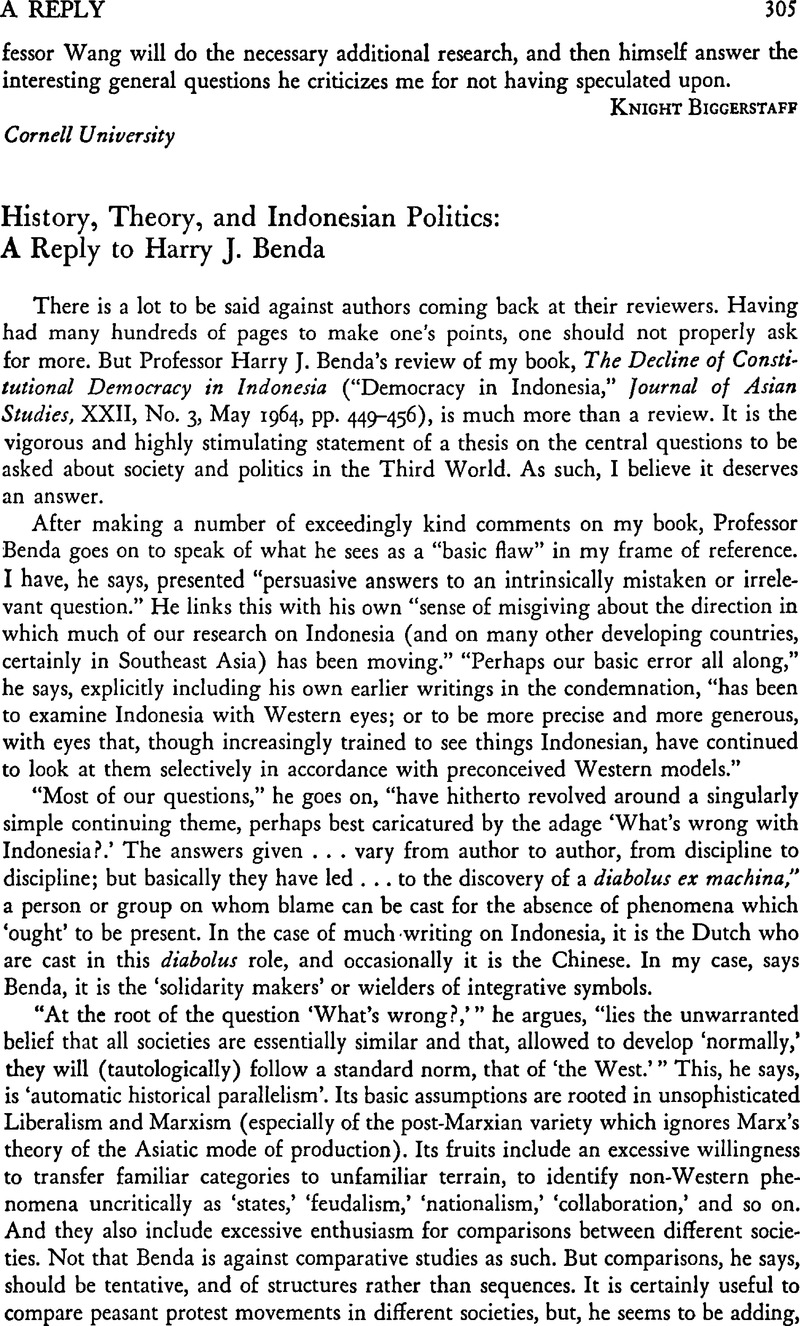Published online by Cambridge University Press: 23 March 2011

1 The term comes from David A. Apter's three-part set of developmental types, reconciliation system (e.g. Nigeria), mobilization system (e.g. Ghana), and modernizing autocracy (e.g. Buganda)—see his “System, Process and die Politics of Economic Development” in Hoselitz, Bert F. and Moore, Wilbert E., ed., Industrialization and Society (UNESCO-Mouton) 1963, pp. 135–158Google Scholar.
2 See Geertz, Clifford, “Religious Belief and Economic Behavior in a Central Javanese Town: Some Preliminary Consideration,” Economic Development and Cultural Change IV, No. 2 (January 1956), pp. 134–158CrossRefGoogle Scholar.
3 For some of the many efforts currently being made to clear up the confusion, see the contributions of Wilbert E. Moore and Neil J. Smelser in Hoselitz and Moore op. tit. pp. 32–54, 299–370; Eisenstadt, S. N., “Modernization: Growth and Diversity,” India Quarterly Vol. 20. No. 1, Jan.-March 1964Google Scholar; Bellah, Robert N., “Reflections on the Protestant Ethic Analogy in Asia,” Journal of Social Issues, XIX No. 1, Jan. 1963Google Scholar; and Riggs, Fred W., Reflections on Development, unpublished paper, University of Hawaii, 1963Google Scholar.